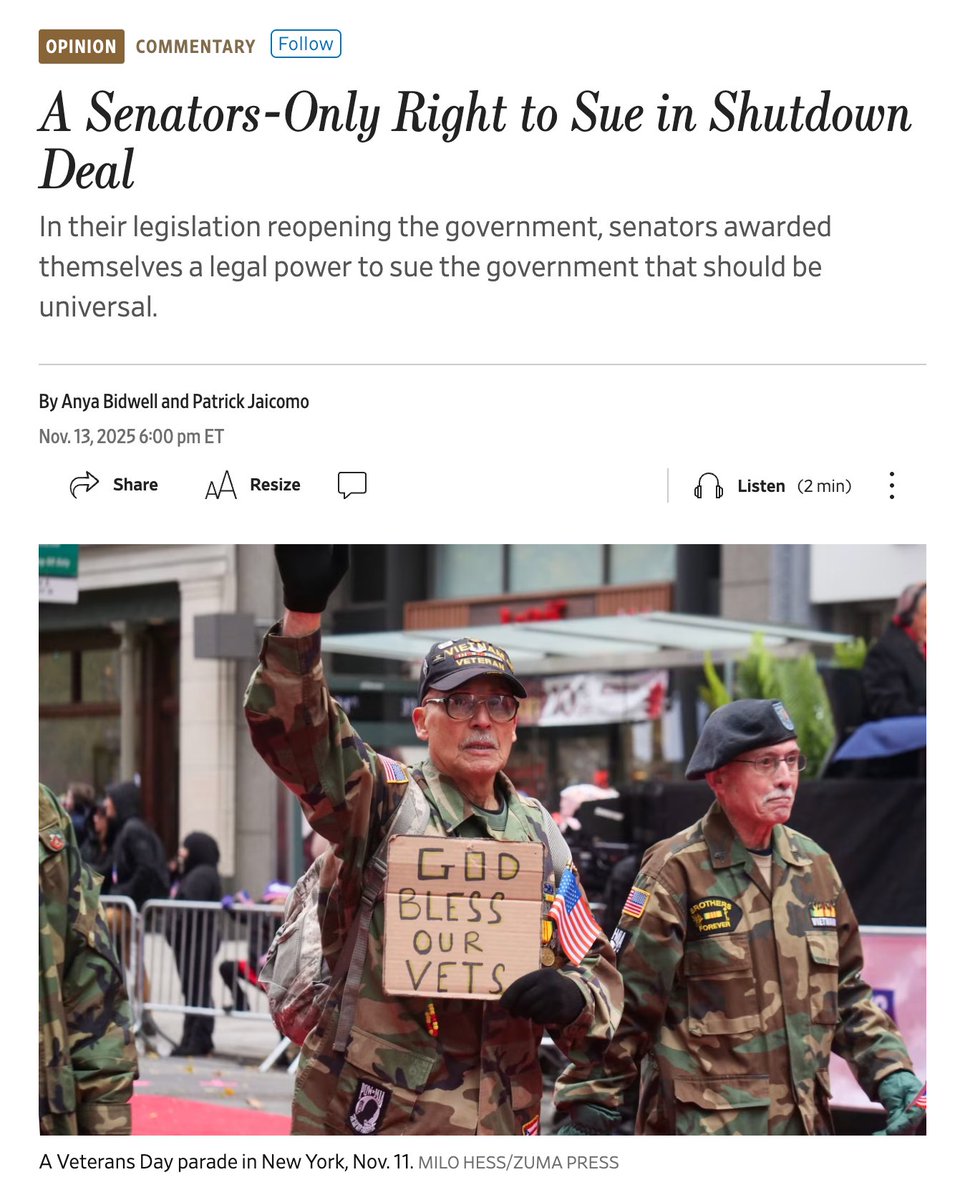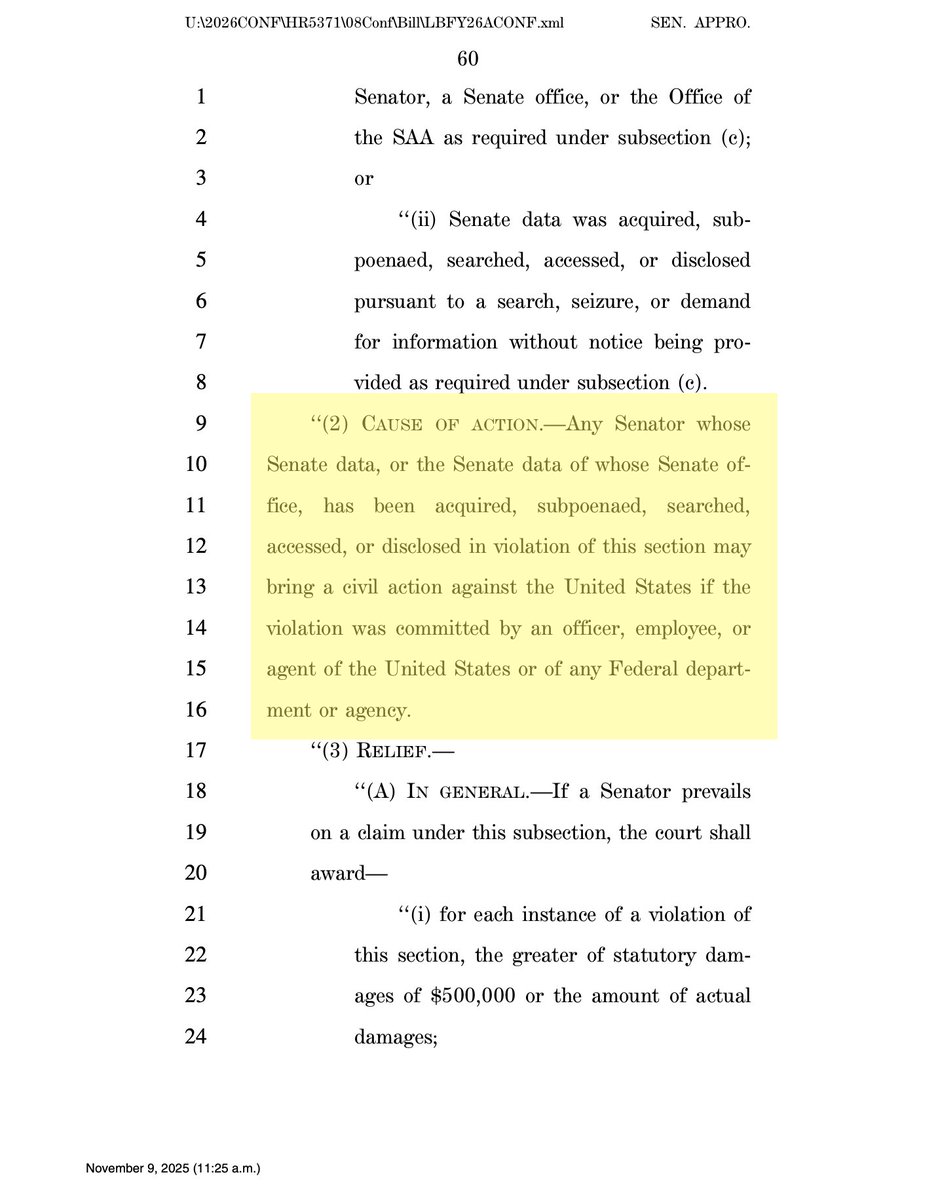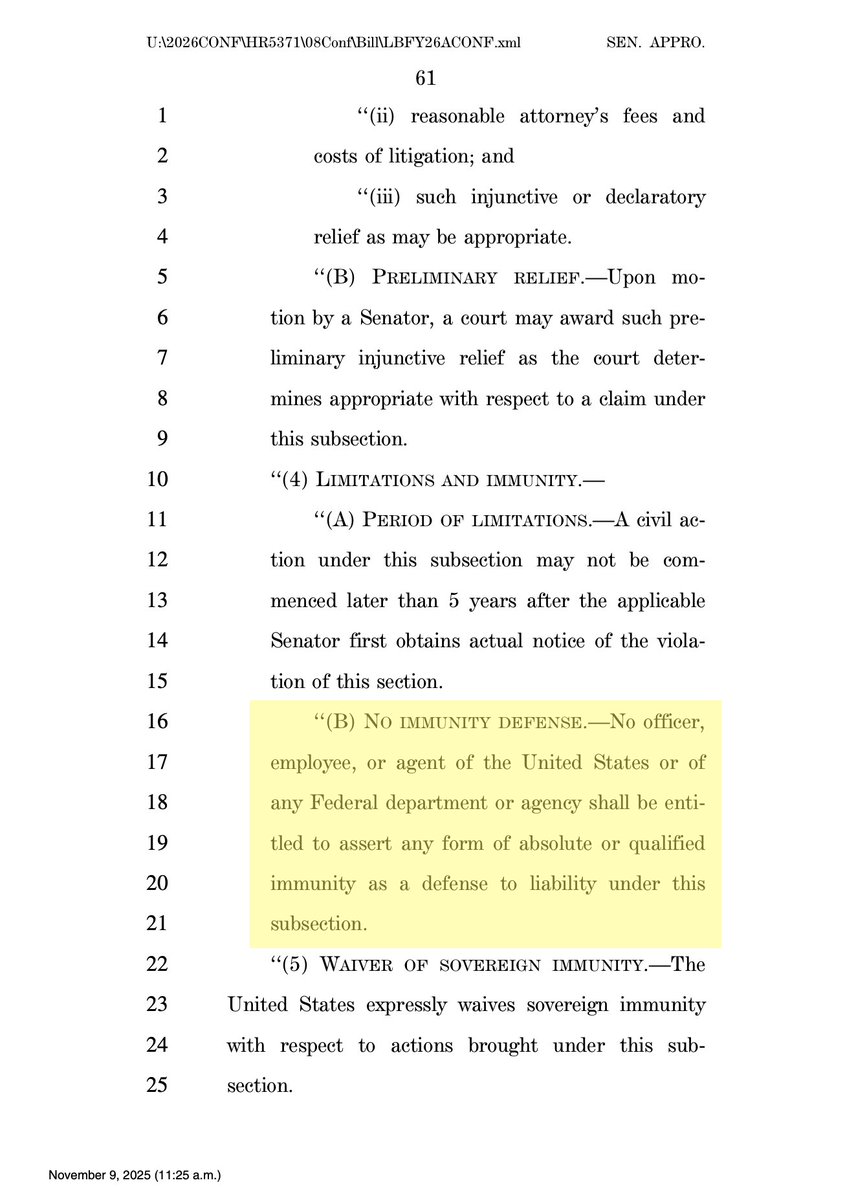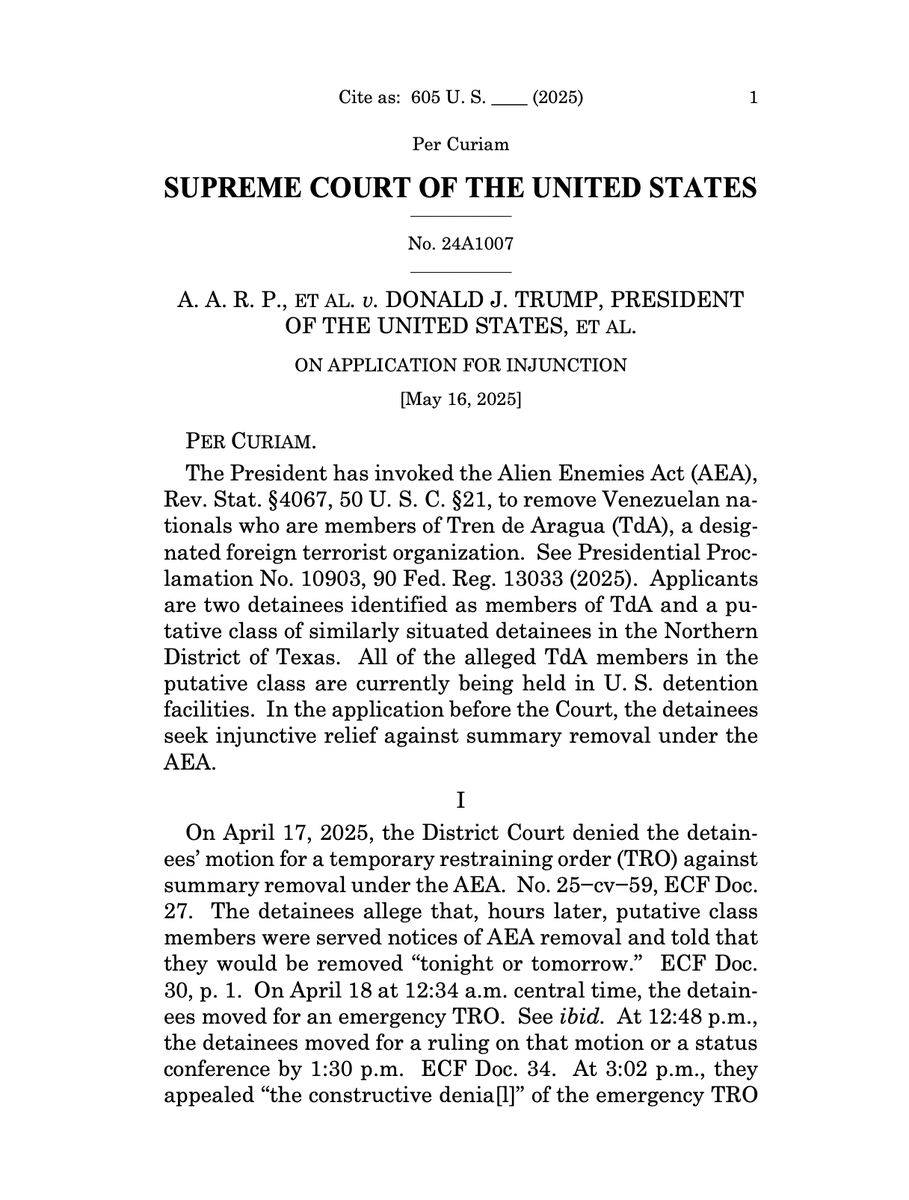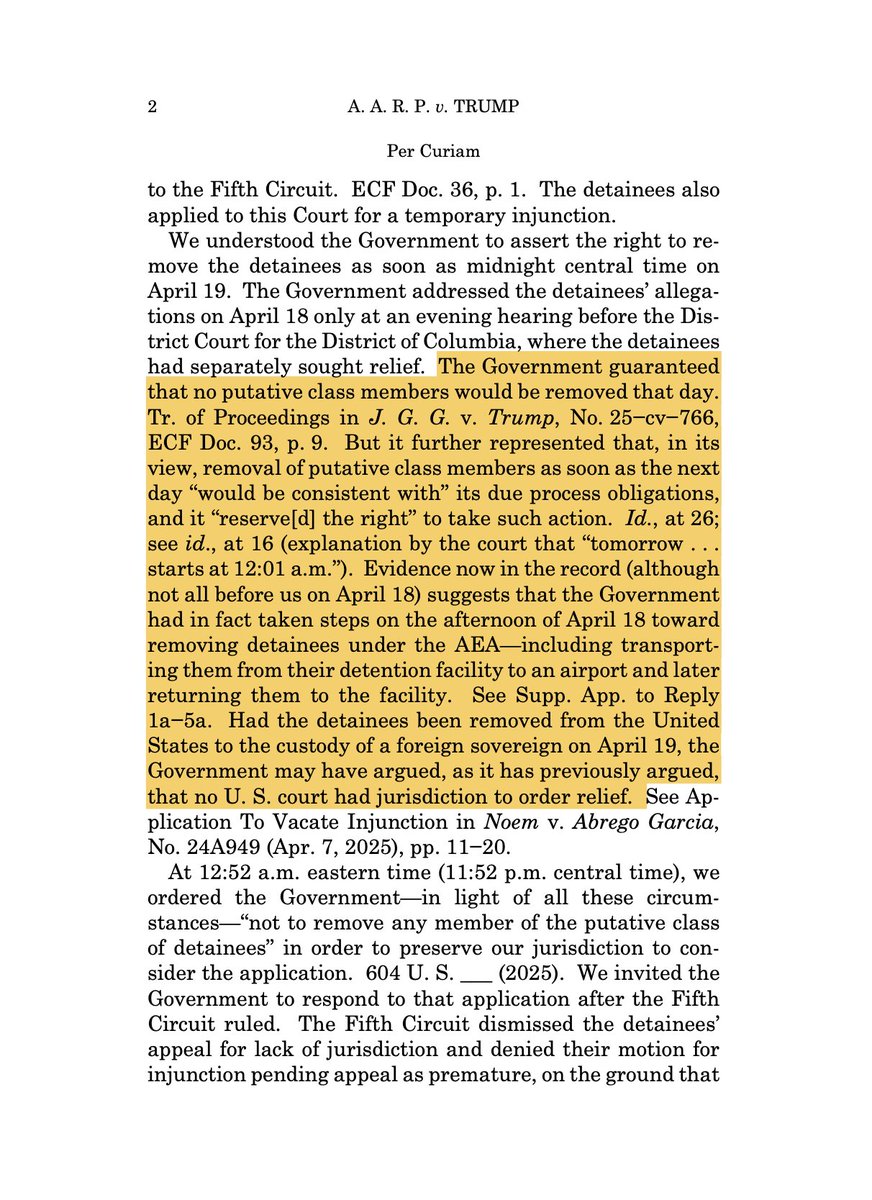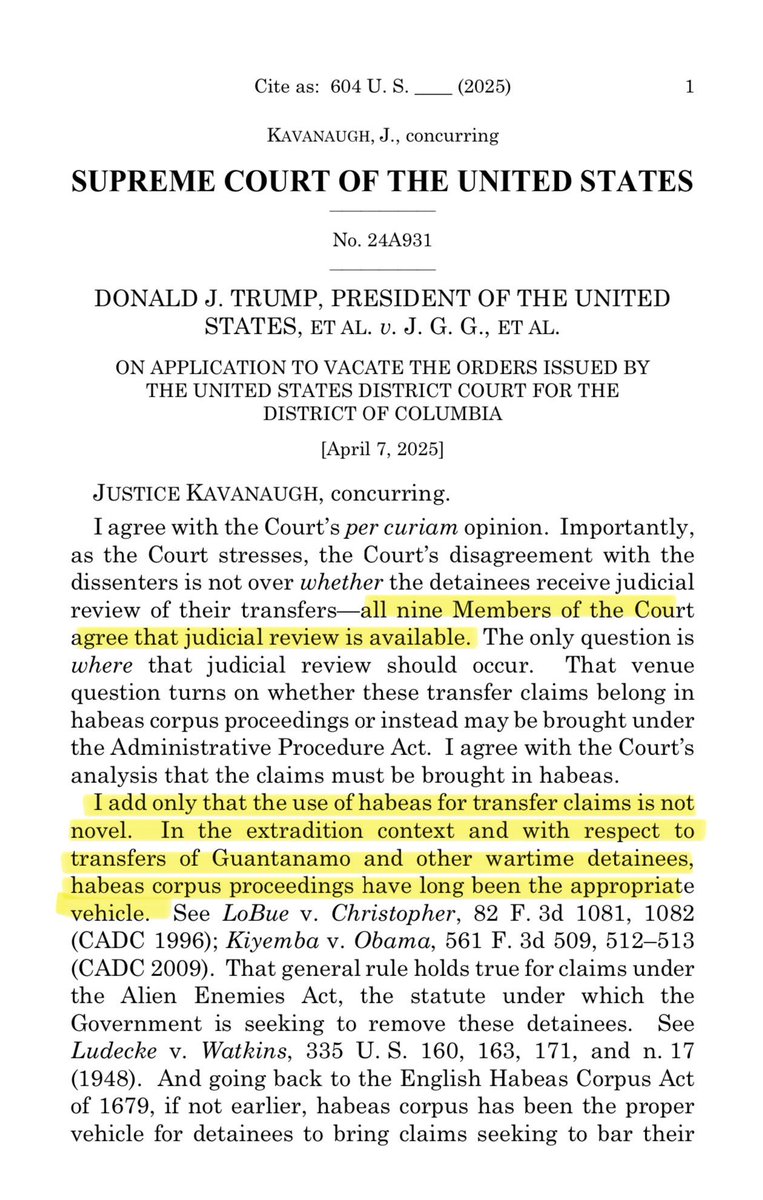In #QualifiedImmunity news, a 2-1 5th Cir. granted QI to a group of Castle Hills, TX officials who conspired to throw @IJ client and then-72yo Sylvia Gonzalez in jail for exercising her #FirstAmendment rights to speech and petition. #AppellateTwitter
🧵 1/
ca5.uscourts.gov/opinions/pub/2…
🧵 1/
ca5.uscourts.gov/opinions/pub/2…
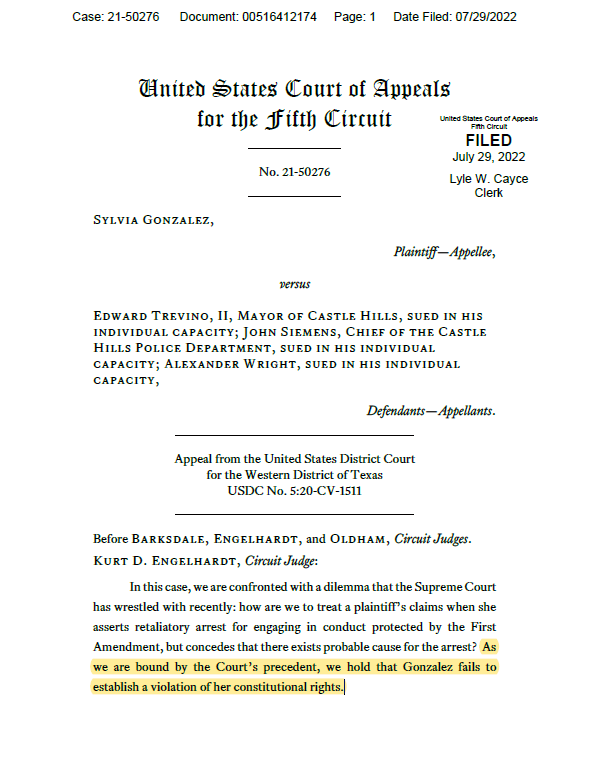
More specifically, the court held that because there was probable cause for a made-up misdemeanor charge, it did not matter that the mayor, police chief, and others conspired to have Syliva jailed for speaking out. (The decision represents a narrow interpretation of Nieves.) 2/ 

Although @IJ and Sylvia proved that, over a decade no one in Bexar Cnty. TX has EVER been charged under the statute used to charge Sylvia for similar conduct, the only sufficient evidence is proving a negative; find people who jaywalked and DIDN'T get a ticket. (Impossible.) 3/ 

Still, as the majority's language above repeatedly indicates: it is uncomfortable with (what it interprets to be) the rule from #SCOTUS. Moreover, there is now a circuit split on this issue, also acknowledged: 4/ 

And who writes a POWERFUL dissent in this #QualifiedImmunity case? Conservative, Trump appointee Judge Oldham. 5/ 

The dissent is excellent and perfectly highlights why #SCOTUS decisions Nieves and Lozman should allow Sylvia's #FirstAmendment claim to go forward in light of overwhelming evidence that the defendants conspired to and did retaliate against her speech and petition rights: 6/ 

Protected activity cannot justify a planned-out arrest under Nieves, which was focused on split-second decision making. 7/ 

The Castle Hills officials here CLEARLY conspired to retaliate against Sylvia, including by intentionally circumventing the DA. And the probable cause affidavit by a "faux detective" (Oldham's words) explicitly proves the arrest was based on #FirstAmendment activity. 8/ 

In the end, #QualifiedImmunity should not apply. Probable cause or not, it's abundantly and objectively clear that Castle Hills officials arrested Sylvia in retaliation for #FirstAmendment activity. 10/ 





So, here we are:
An @IJ client's rights were violated.
Her abusers have #QualifiedImmunity.
And there is a circuit split.
Let's go.
/END
ij.org/case/castle-hi…
An @IJ client's rights were violated.
Her abusers have #QualifiedImmunity.
And there is a circuit split.
Let's go.
/END
ij.org/case/castle-hi…
• • •
Missing some Tweet in this thread? You can try to
force a refresh




